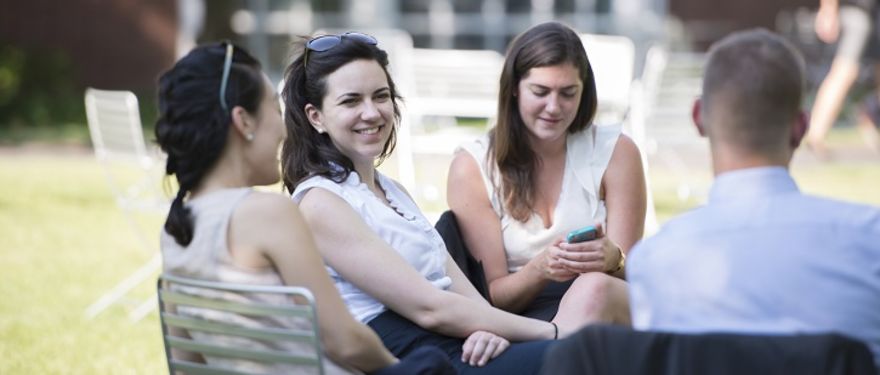Reading cases is an integral part of the HBS experience. The
case method was pioneered at HBS, and 80% of the cases published each year are
written by HBS faculty members. By the time students complete their two years
here, they will have discussed and evaluated over 500 cases. Learning to
synthesize a case, and decide what action a protagonist should take, is a skill
that students hone throughout their time here.
For students in their first year in particular, preparing
for the in-class case 
discussion is a collaborative process. While cases are
initially read and studied individually, students have a chance to ask
questions and evaluate their conclusions in a small group setting (called
discussion groups) before heading to class. So what exactly is a discussion
group? We checked in with Jay Garg (MBA 2016), a former product marketer at
Google, to learn more. Here’s what he thought you should know.
1. Discussion groups help prepare you for in-class case discussions
Discussion groups bring together students from diverse backgrounds to collaborate and delve deeper into understanding HBS cases. Groups range from five to six students, and each member is from a different section. Discussion groups meet each morning from 8:00-9:00am to help prepare for classes.
People share different perspectives on the material and help each other prepare for the case method style of teaching and participation. Depending on the class, groups cover spreadsheet models, interpretations of exhibits, and perspectives on case readings. We had a very diverse discussion group in my first year; we had people with backgrounds in finance, others in consulting, and a few in tech.
The case method is a challenging style of teaching and learning, and discussion groups can help students with different strengths and weaknesses learn from each other to better prepare for class. By reviewing interpretations and numbers for different cases, students can make sure they are on top of the material and can test out opinions and ideas about cases before they go to class.
2. Discussion groups are a required part of your first year curriculum
Students are required to participate in assigned discussion groups during the first term of RC year. Second semester, students can choose whether to stick with their original team, self-organize a new group, or opt-out of participating in discussion groups entirely.
3. Discussion groups are a great way to make new friends
Discussion groups really help students meet their peers who are not in their section. They’re a great way to become close to a small group of people at HBS. My favorite memory was our first group dinner, where we got together at a member's house and got to know each other. My bond with these classmates was a formative part of my RC year, and we continue to meet up and check in with each other in our second year.

